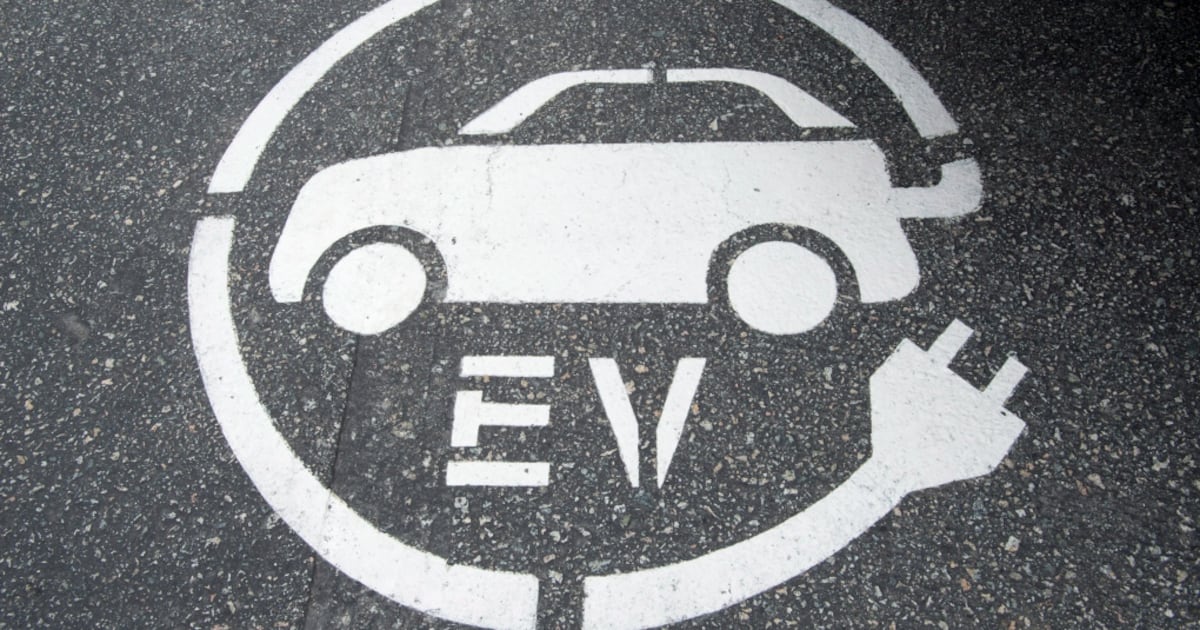Debate Heats Up: Car Dealers Versus EV Mandates

Table of Contents
The Dealers' Perspective: Challenges and Concerns with EV Mandates
Car dealerships face significant challenges adapting to EV mandates. These challenges impact their operational models, profitability, and long-term sustainability.
Inventory and Infrastructure Limitations
The transition to EVs requires substantial upfront investments for dealerships.
- High Infrastructure Costs: Installing charging stations, acquiring specialized EV repair tools, and upgrading service bays represent considerable financial burdens.
- Inventory Management: Balancing the inventory of traditional internal combustion engine (ICE) vehicles with EVs requires complex logistical planning and potentially increased storage space.
- Reduced Profitability: In some cases, profit margins on EVs are currently lower than those on ICE vehicles, impacting overall dealership revenue.
- Specialized Training: Dealerships need to invest in training their sales and service staff on the specifics of EV technology, maintenance, and repair. This involves both initial training and ongoing professional development to keep pace with technological advancements.
Consumer Resistance and Market Readiness
Consumer adoption of EVs is not uniform, and several factors hinder widespread acceptance.
- Range Anxiety: Concerns about limited driving range and the availability of charging stations remain significant barriers for many potential EV buyers.
- Charging Time: Longer charging times compared to refueling ICE vehicles present a significant inconvenience for some consumers.
- Purchase Price: Higher initial purchase prices of EVs compared to comparable ICE vehicles can deter budget-conscious buyers.
- Uneven Adoption: EV adoption rates vary significantly across different demographics and geographic regions, with some areas lagging behind others.
The Impact on Existing Business Models
EV mandates could significantly disrupt established dealership business models and revenue streams.
- Service Department Revenue: The reduced maintenance needs of EVs could impact the profitability of service departments traditionally reliant on ICE vehicle repairs.
- Potential Job Losses: The shift to EVs may lead to job losses in certain areas of dealership operations, such as those specializing in ICE vehicle repair and maintenance.
- Legal Challenges: Dealer associations may challenge EV mandates through legal actions, arguing against unfair competition or insufficient government support.
The Case for EV Mandates: Environmental and Economic Benefits
Proponents of EV mandates highlight the significant environmental and economic advantages of accelerating EV adoption.
Reducing Greenhouse Gas Emissions
Increased EV adoption is crucial for mitigating climate change and improving air quality.
- Significant Emissions Reductions: Switching from ICE vehicles to EVs can dramatically reduce greenhouse gas emissions, contributing to national and global climate goals. Studies show a substantial decrease in carbon footprint per mile driven.
- Improved Air Quality: Reducing emissions from vehicles directly improves air quality, especially in urban areas, leading to significant public health benefits.
- Meeting Climate Targets: EV mandates are viewed as a necessary policy tool to meet ambitious climate change targets and commitments set by governments worldwide.
Stimulating Economic Growth and Innovation
The transition to EVs presents significant opportunities for economic growth and technological innovation.
- Job Creation: The EV sector creates numerous jobs in manufacturing, charging infrastructure development, battery technology, and related industries.
- Technological Advancements: Competition in the EV market drives innovation in battery technology, charging infrastructure, and vehicle design, leading to continuous improvements.
- Energy Independence: Increased reliance on EVs reduces dependence on fossil fuels, improving energy security and potentially lowering energy costs.
Addressing Public Health Concerns
Air pollution from ICE vehicles is a major public health concern. EVs offer a solution.
- Respiratory Illnesses: Exposure to air pollution from vehicle emissions is linked to various respiratory illnesses, particularly among children and the elderly.
- Improved Urban Air Quality: Widespread EV adoption can dramatically improve air quality in urban areas, reducing respiratory problems and associated healthcare costs.
- Reduced Healthcare Costs: Improvements in public health due to cleaner air can lead to significant reductions in healthcare costs associated with respiratory illnesses.
Finding a Balance: Potential Solutions and Compromises
Finding a balance between the needs of car dealerships and the environmental and economic benefits of EV mandates requires a strategic approach.
Phased Implementation of EV Mandates
A gradual transition allows dealerships and consumers to adapt more effectively.
- Realistic Timelines: Setting achievable targets for EV adoption over a defined period gives dealerships time to adapt their infrastructure and training.
- Financial Incentives: Government support through tax credits, grants, and other incentives can ease the financial burden on dealerships during the transition.
- Phased Quotas: Implementing gradually increasing quotas for EV sales each year gives dealerships a roadmap and manageable targets.
Government Support for Dealer Training and Infrastructure Development
Government assistance is crucial to support dealerships during the transition.
- Funding for Upgrades: Government funding can help dealerships finance upgrades to their infrastructure, including the installation of charging stations and specialized equipment.
- Public-Private Partnerships: Collaborations between the government and private sector can facilitate the development of charging infrastructure and training programs.
- Incentivizing Dealers: Governments could offer financial incentives to dealerships that invest in EV infrastructure and training.
Addressing Consumer Concerns through Education and Awareness Campaigns
Addressing consumer concerns through education and awareness campaigns is vital.
- Government-Led Initiatives: Government-sponsored campaigns can help address misconceptions and highlight the benefits of EVs.
- Consumer Resources: Providing easily accessible information on EV technology, charging infrastructure, and government incentives empowers consumers to make informed decisions.
- Transparency and Addressing Range Anxiety: Open communication about charging infrastructure development and addressing concerns about range anxiety is crucial for building consumer confidence.
Conclusion
The debate surrounding EV mandates is complex, presenting both significant challenges and considerable opportunities. Car dealerships face legitimate concerns regarding infrastructure investment, consumer demand, and the potential disruption of existing business models. However, the environmental and economic benefits of transitioning to electric vehicles are undeniable. A phased implementation, combined with government support for training, infrastructure development, and consumer education, is key to navigating this transition successfully. The key takeaway is the need for collaboration and a strategic approach to ensure a smooth and efficient transition to a more sustainable automotive future. The ongoing discussion around EV mandates and related policies will shape the future of transportation. Stay informed and engage in the conversation about the future of electric vehicle adoption and the evolving automotive landscape.

Featured Posts
-
 Top Rated Nike Running Shoes 2025 Performance And Style Compared
May 26, 2025
Top Rated Nike Running Shoes 2025 Performance And Style Compared
May 26, 2025 -
 From Loss To Love Jonathan Peretzs Story Of Resilience
May 26, 2025
From Loss To Love Jonathan Peretzs Story Of Resilience
May 26, 2025 -
 Container Ship Grounding Cnn Coverage Of Unlikely Event
May 26, 2025
Container Ship Grounding Cnn Coverage Of Unlikely Event
May 26, 2025 -
 Saksikan Siaran Langsung Race Sprint Moto Gp Inggris Pukul 20 00 Wib
May 26, 2025
Saksikan Siaran Langsung Race Sprint Moto Gp Inggris Pukul 20 00 Wib
May 26, 2025 -
 Tadej Pogacars Unflagged Tour Of Flanders Strava Activity
May 26, 2025
Tadej Pogacars Unflagged Tour Of Flanders Strava Activity
May 26, 2025
